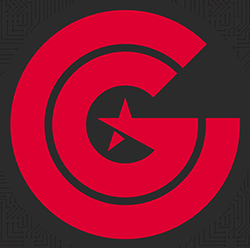 Combining a traditional sports franchise like the Houston Rockets with a tech-oriented esports venture could have been a huge challenge, but there are many similarities, as it turns out. When the Rockets launched Clutch City Gaming, they turned to Renato Perdigão, an expert videogame analyst and recruiter.
Combining a traditional sports franchise like the Houston Rockets with a tech-oriented esports venture could have been a huge challenge, but there are many similarities, as it turns out. When the Rockets launched Clutch City Gaming, they turned to Renato Perdigão, an expert videogame analyst and recruiter.
It might have come as a surprise to some that the Houston Rockets bought an esports team back in November, but not to esports insiders. Several NBA, MLB and NFL teams have jumped on the esports train, which is on the rise globally. According to statistics website Statista, the esports market was valued at about US$493 million globally in 2016 and is expected to grow at a rate of around 40 percent each year. The market could cross the billion-dollar mark within the next five years.
But esports represents a totally different business model for the likes of a Houston Rockets front office, and that’s where someone like Perdigão comes in. He originally went to university to study Information Management, but eventually he found his calling in the videogame industry.
“It all started in statistics class,” he said. “I had my laptop out and started doing math equations on an aspect on the League of Legends game. I made a post about it on Reddit and it got pretty high up and was collected by a site that put that information on their website.”
Pedigão reached out to the website to ask them to list him as the source of the video. His email caught the attention from Steve Arhancet, currently a Co-CEO for Team Liquid, a high-profile professional esports organization.
“Back then he was on Team Curse and told me that the information I had was great and asked if I wanted to edit Champion Guides, which were big educational materials,” Perdigão said. “Those guides are what players read to learn how to become a champion in the game. They hired me as a freelancer and it started there.”
Perdigão worked with them part-time and it eventually led to him working with professional esports players analyzing their game play. His other experience included time as an assistant coach for the Brazilian eSports team INTZ esports in the League of Legends Finals, and a stint with LOLKing—a popular online resource for League of Legends players—as a site content manager.
Seeing his future in esports, Perdigão decided to drop out of university.
“I told my parents I wanted to a do a year in esports and if it didn’t work out, I’d go back to school,” he said. “During that year, it was up and down because esports wasn’t as secure a job then as it is now. After a year, I decided to keep going and it’s worked out.”
His experience with LOLKing and his experience with League of Legends made him a valuable asset to the Rockets, who were looking at getting into the esports market.
“Mid-2017, I had heard that the Houston Rockets had assembled an application to get a franchise team. While the application process was towards the end of the year, we wanted to get a head start doing leg work,” Perdigão said. “For a team getting in, you have no infrastructure built. In the summer of 2017, I left my job at LOLKing to start scouting players and watched hours and hours of film to make sure they had targets in mind if we got accepted into the LCS [League Championship Series].”
The Rockets were accepted into the North American League of Legends Championship Series between mid-October and mid-November after two stages of applications. After acceptance came the big challenge: which players to target and who would eventually join Clutch City Gaming. Esports teams are set up much like other traditional sports organizations in that they include departments like scouting, something that Perdigão said came in handy when talking about strategies.
“A lot of stuff you can take from professional sports and put back in esports. When I visited in December, I met up with Monte McNair, who was is the VP of Basketball Operations for the Houston Rockets, and discussed some methodologies,” Perdigão said. “It’s a different space but there are things to learn and apply like grading systems. We have very involved people from the Rockets who are paying attention with what happens on the esports side and are very interested in how we do.”
Clutch City Gaming had a strong first split, coming in fourth place ahead of the previous year’s championship team, and Perdigão thinks the team’s potential will continue to grow over the next few splits.
“Most analysts expected the team to be in the middle of the pack and barely make playoffs. I think the team did very well. We went to our Game Five but couldn’t make it to the Finals but we were very close,” Perdigão said. “Our goal for the organization coming in was to qualify for a world championship in the first year, which is a tough goal. I think we have the means to do it and the team is trying to get there for sure. For me, I want the franchise to come away as a top performer year after year and get a championship in North America.”
According to Statista, the esports global viewing audience was over 300 million people in 2017, including 143 million frequent viewers/enthusiasts. When asked about the future of the esports industry and it continuing to grow with revenue opportunities, Perdigão said the next hurdle is figuring out broadcast rights and marketing it to the right audience.
“It’s a very different demographic from traditional sports,” he said. “There’s not pay-per-view. Broadcasting rights and sponsorship acquisitions are the next barriers to get through. When viewership is mainly composed of teenagers and young adults, it’s hard for them to accept they need to pay for content. But if they figure that out, the audience is definitely there.”
This article originally appeared in the weekly Arena Digest newsletter. Are you a subscriber? Click here to sign up for the free weekly newsletter

